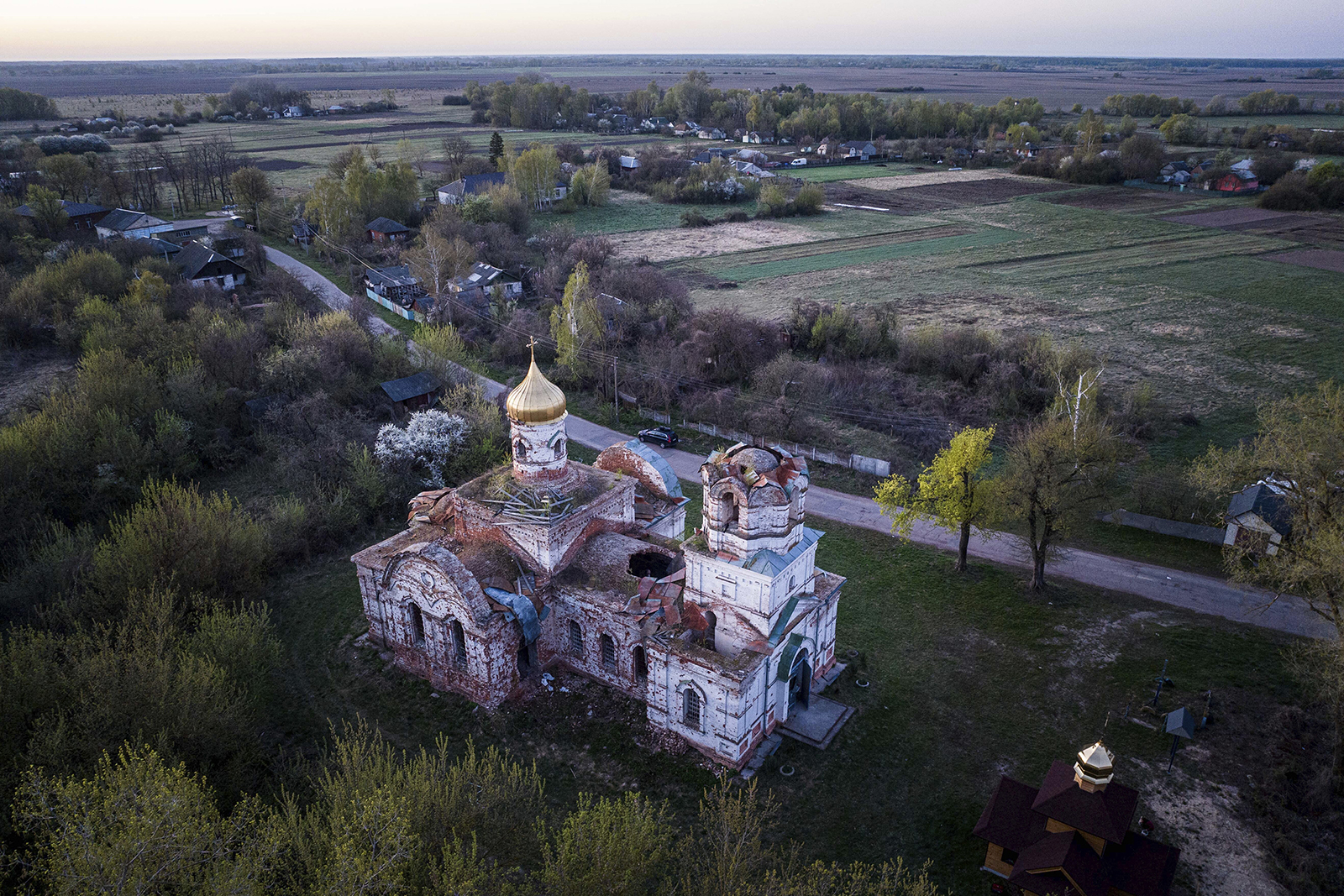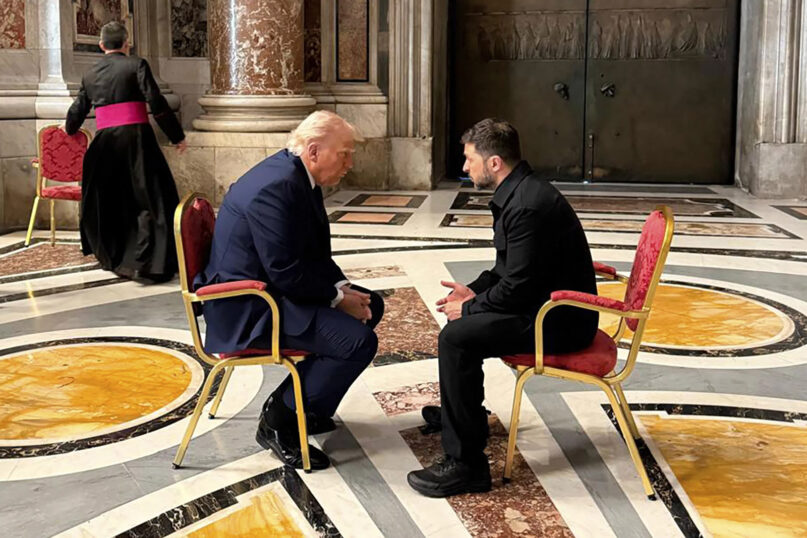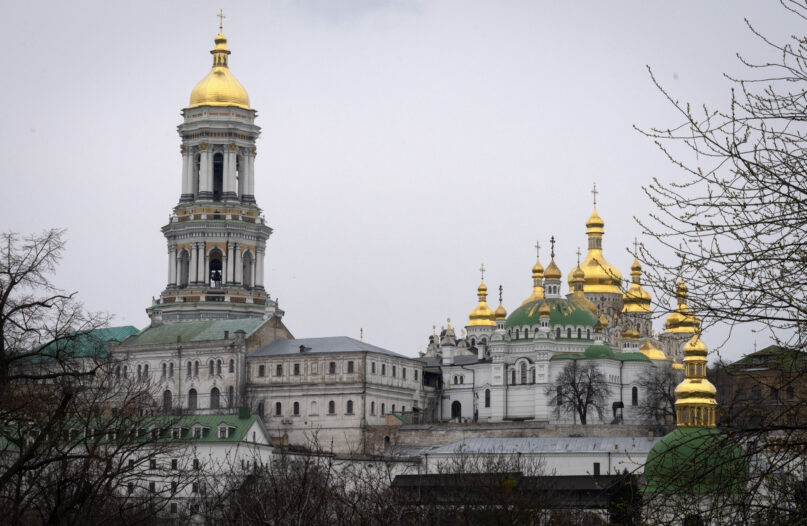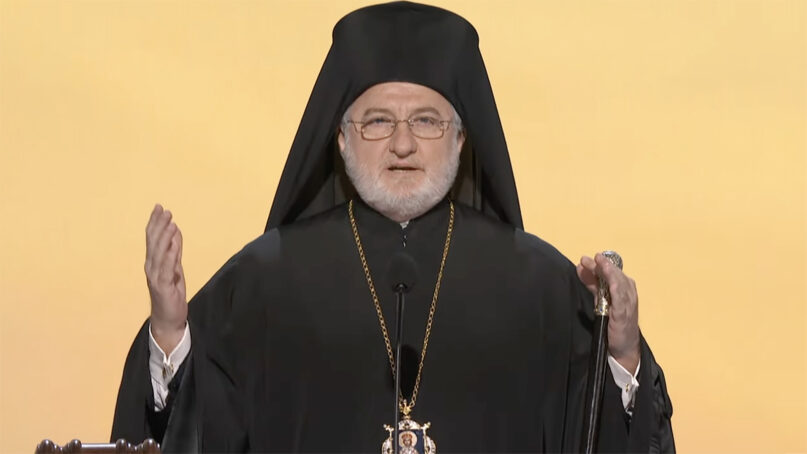
(RNS) — A delegation of Orthodox Christian clergy and lobbyists met with Trump administration officials and members of Congress this week, igniting feuds among both U.S. Orthodox Christian and Republican groups amid accusations that the visitors were agents of Russian influence.
On Tuesday (Nov. 18) and the following days, representatives from various Orthodox churches in the U.S., including the Russian Orthodox Church Outside of Russia and the Orthodox Church of America, met with Tulsi Gabbard, director of national intelligence; U.S. Reps. Anna Paulina Luna of Florida and Darrell Issa of California, both Republicans; U.S. Rep. Raja Krishnamoorthi of Illinois, a Democrat; the incoming ambassador for international religious freedom, Mark Walker; and the State Department’s undersecretary for public diplomacy, Sarah Rogers.
Issa, an Antiochian Orthodox Christian, is vice chair of the House Foreign Affairs Committee.
The delegation was scheduled to meet with the White House Faith Office, but White House staff canceled the meeting as the delegation arrived, according to a source close to the White House. The White House did not respond to a request for comment.
The meetings had been organized by members of the Young Republicans National Federation and the Society of Saint John of Shanghai and San Francisco, a religious fraternity that evangelizes for Orthodox Christianity in the United States and supports the Ukrainian Orthodox Church, which is historically linked to Russia. The groups apparently aimed to draw attention to what they call the persecution of the UOC, which has seen its churches shut down by the Ukrainian government and its priests accused of being spies for Russia.
According to a statement by Catherine Whiteford, co-chair of the Young Republicans National Federation, the delegation asked that the U.S. stop funding efforts that directly contribute to persecution of religious groups, end the drafting of clergy for roles other than chaplaincy, provide medical care to imprisoned clergy and release clergy and journalists detained allegedly for their faith or for reporting on alleged abuses against UOC members.
But ahead of the delegation’s visit, U.S. Rep. Joe Wilson, a South Carolina Republican, released a letter he had sent to Attorney General Pam Bondi asking her to investigate “Russian Orthodox Church institutions operating within the United States, including the Russian Orthodox Church Outside of Russia (ROCOR)” as to “whether the Russian Federation or its intelligence services have sought to recruit, leverage, influence or otherwise compromise” their independence.
In a Nov. 17 post on X, Wilson clarified his position, saying, “The Russian Orthodox Church is not a separate religious organization but an extension of the Russian state,” adding, “Evangelizing is illegal in Russia and Christians are targeted and killed in Ukraine. Members should not entertain this intelligence operation.”

FILE – Ukraine’s President Volodymyr Zelenskyy, right, and President Donald Trump, talk in St. Peter’s Basilica as they attend the funeral of Pope Francis at the Vatican, Saturday, April 26, 2025. (Photo courtesy Ukrainian Presidential Press Office)
The Republican infighting over the delegation shows the GOP’s ambivalence toward Ukraine, even as Trump’s peace envoy, Steve Witkoff, reportedly closes in on a peace deal that would award Russia large swaths of Ukrainian territory that Ukrainian President Volodymyr Zelenskyy has previously vowed to never cede.
Ukraine, whose population is primarily Eastern Orthodox, has two competing Orthodox church bodies since 2018: the Ukrainian Orthodox Church, which declared itself independent after the war began but, without recognition from Moscow, officially remains under its jurisdiction, and the Orthodox Church of Ukraine, whose independence was recognized by the Ecumenical Patriarch Bartholomew in Istanbul, historically the center of Eastern Orthodoxy.
A 2024 survey by the Kyiv International Institute of Sociology found that 56% of Orthodox Ukrainians identified with the Ukrainian independent church, while only 6% identified with the Russia-linked church. Many former UOC parishes have voted to join the independent Ukrainian church since the war began.
In response to the OCU’s recognition, the Russian church broke communion with the Ecumenical Patriarchate. The schism has created a dividing line among other Orthodox churches worldwide, with some remaining in contact with the most powerful Orthodox hierarchs in Moscow, and others remaining in communion with Istanbul. As Russian Patriarch Kirill has championed the war, the divide has also expressed itself politically, with many Orthodox Christians loyal to Moscow blaming NATO and the U.S. for Russia’s invasion of Ukraine.

FILE – The Monastery of the Caves, also known as Kyiv-Pechersk Lavra, one of the holiest sites of Eastern Orthodox Christians, in Kyiv, Ukraine, Thursday, March 23, 2023. (AP Photo/Efrem Lukatsky, File)
In 2024, Ukraine passed a law banning religious organizations with ties to the Russian church over concerns of Russian intelligence gathering. Several watchdog agencies, including the United Nations, have warned Ukraine that the law, and the church closings, violates religious freedom. Some clergy and lay members of the Ukrainian Russian-linked church have faced violence, arrests and property seizures from members of the independent Ukrainian church.
The Hill, a Washington outlet focused on Congress, report raised the question of whether the delegation was lobbying for Moscow. Together with Wilson’s remarks, the implications generated alarm and fierce criticism among Orthodox Christians, most notably a group of lay church members, many of them wealthy Greek Americans, who serve as ambassadors and fundraisers for the Ecumenical Patriarchate.
This group, the Archons of the Ecumenical Patriarchate, harshly criticized the delegation. “The AEP condemns this deceptive attempt to legitimize Russia’s use of the Orthodox Church as an arm of its aggressive foreign policy.” The archons asked the Trump administration to cancel the planned White House Faith Office meeting with “Russian agents,” saying the group behind the meetings seeks “to solicit an American blessing upon its misleading tactics, which result in the persecution of the Orthodox Christians in Ukraine.”
Archbishop Elpidophoros, the head of the Greek Orthodox Archdiocese in America, issued a statement Friday that made clear that he does not see any of his fellow hierarchs or their representatives as agents of foreign governments and noted that the Orthodox Assembly of Bishops, which has tenuously united Orthodox Christians across jurisdictions in the U.S., expressed unanimous concern over Ukraine’s restrictions on the UOC last year.
“All of us jointly recognize that, when the church becomes entangled with political matters, it does so at the risk of itself and its faithful,” he said, adding, “We must focus on growing relationships and healing wounds, rather than provoking one another.”

FILE – Archbishop Elpidophoros offers a prayer during the Republican National Convention, Monday, July 15, 2024, in Milwaukee, Wis. (Video screen grab)
But the archbishop did little to cool the anger over the visit and the response it generated. The Rev. Thomas Soroka, a priest in the Orthodox Church of America, has petitioned its bishops to suspend their membership or withdraw from the Assembly of Bishops.
The Rev. Vasilije Vranic, episcopal dean of Washington in the Eastern America diocese of the Serbian Orthodox Church and a member of the delegation, said in a statement posted on Telegram on Friday, “I … unequivocally reject as unwarranted, utterly false, and completely misguided the Archons’ characterization of myself and/or my Church as boosters of ‘Putin’s war.’ Our sole purpose has been and always will remain peace and immediate stop of the suffering of the people of Ukraine.” He demanded the archons apologize and urged Elpidophoros to distance himself from them.
Nonetheless, this week’s delegation raised concerns in part because it was suspected that Russian influence had quietly secured so many top-level meetings with American officials. One of the organizers was tied to Robert Amsterdam, a lawyer who works for Vadim Novinsky, a Russian-Ukrainian oligarch and a deacon who has been serving the Russian Orthodox Church in Zurich.
Though Novinsky has provided millions of dollars in humanitarian aid for Ukrainians since the war began, he is also a former member of a pro-Russian party in Ukraine and is facing criminal charges there. Ukrainian security services have seized more than $200 million worth of his assets.
Amsterdam has retained an American lobby firm for the past two years to run a campaign called Save The UOC, which seeks to defend freedom of religion in Ukraine. He has appeared on “The Tucker Carlson Show” to spread his message.
Catherine Whiteford, the daughter of the Rev. John Whiteford, a controversial ROCOR priest, published a letter Thursday on behalf of the Society of Saint John of Shanghai and San Francisco. She called for the archons to retract their statement and for Greek Orthodox Archbishop Elpidophoros to apologize. “The path forward lies not in accusation, but in honesty, repentance, and open cooperation,” Whiteford said. “We remain committed to that path.”
The delegation, which included representatives of the Serbian and Antiochian Orthodox Churches, plans to hold a larger Legislative Day of Action for the UOC on Dec. 12 on Capitol Hill. Rep. Luna is slated to host.
